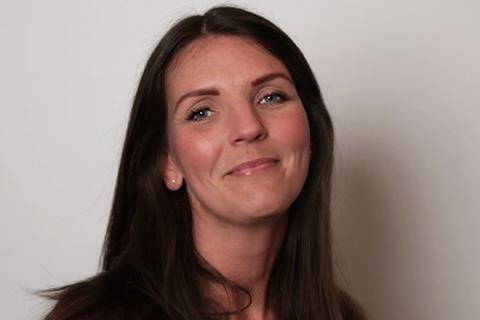Changing how we build projects is central to achieving a sustainable and equal society - we have to find ways of doing both
It was perhaps inevitable that after its long development period, following multiple levelling up funding announcements and the creation of the creation of Department for Levelling Up, Housing and Communities, that the eventual document would not meet everyoneŌĆÖs expectations. Yet I canŌĆÖt help but feel optimistic that the launch of the levelling up white paper signalled a clear stated policy commitment to tackling inequality in the UK, positioned as a long-term shared agenda. While this is significant, and a strong starting point, we need to ensure this translates into action, and our sector has a key role to play.

For those working in our sector many of the challenges the paper describes, and the solutions it explains, summarised in the ŌĆÖ12 missionsŌĆÖ feel familiar.ŌĆ» We are very aware of the inequality that exists in the communities we work in ŌĆō it permeates the projects we deliver every day - and many of us will have been involved in work that has taken place to try to redress this.ŌĆ» Many of the broader themes set out such as the skills shortage are also day to day realities we recognise.ŌĆ»
While the paper acknowledges a basic unfairness in the way opportunity is experienced in the UK today, it could have set firmer foundations by addressing more clearly equality issues such as race, sexual orientation, and gender. One of the things IŌĆÖve found most surprising and satisfying in my career is seeing the pace of transformation around these issues.ŌĆ»
This year I started International WomenŌĆÖs Day hearing from Cllr Bev Craig, leader of Manchester City Council, and it was inspiring to reflect on the fact the local authority I started my career working for is now led by Bev and Joanne Rowney OBE as chief executive. IŌĆÖm excited about being part of the work we at RLB are doing to ensure our teams represent the diversity of the communities we work in, and convinced both our industry, and levelling up generally, can only succeed if we continue to address diversity and inclusion.ŌĆ»
In the aim of ŌĆśgetting things doneŌĆÖ it can be tempting to assume we canŌĆÖt prioritise both levelling up and sustainability
ItŌĆÖs encouraging that events are increasingly placing significant focus on ensuring inclusivity and I was pleased to see the tangible stepsevents such as this weekŌĆÖs UKREiiF forum has put in place to do this. ŌĆ»Our own attendance includes a balanced gender delegation and female speakers, a consequence of increased diversity in RLBŌĆÖs senior leadership roles.ŌĆ»However, I am very aware that while gender is one of the areas where progress is being made many of our colleagues continue to experience unacceptable bias and discrimination. Every day this continues is a lost opportunity - there is still much to be done and this must be at the heart of levelling up.
While the white paper acknowledges inequality and the climate crisis as two key challenges of our times, it didnŌĆÖt develop the discourse about how we ensure we tackle both.ŌĆ» In the aim of ŌĆśgetting things doneŌĆÖ it can be tempting to assume we canŌĆÖt prioritise both levelling up and sustainability.ŌĆ» It feels at times these are proposed as competing priorities to be chosen between - achieve one, or the other, but not both.
> Also read: Details of the Levelling Up and Regeneration Bill
> Gove pledges to boost transport, town centres and skills in levelling up plan
However, as we embed learning about the ways we deliver both, it becomes clear they can be complementary not competing agendas.ŌĆ» Design concepts such as walkable city/15 minute city have shown we can decrease reliance on cars with good urban design, supporting sustainability. As the most disadvantaged communities we work in often have lower levels of car ownership these principles also have a significant contribution to levelling up. ŌĆ»We donŌĆÖt have the luxury of an ŌĆśeither orŌĆÖ approach ŌĆō we will not deliver the kind of spaces and places we need unless we address both priorities ŌĆō and while this wonŌĆÖt always be easy it is critical.
I have always been fascinated with place and feel very grateful for the role our sector gives me to positively contribute to the places where we live, work and play.ŌĆ» But it has always struck me as strange that an industry so good at bringing about transformational change in our ŌĆśday jobsŌĆÖ has been slow at changing and adapting itself.ŌĆ» The UK will not be successful in tackling the climate crisis and levelling up unless the built environment sector is successful in doing so.ŌĆ» The buildings and infrastructure we build are key to both how sustainable and how equal our country will be.ŌĆ» We need to rise to the challenge and demonstrate leadership through events like UKREiiF and ║├╔½Ž╚╔·TVŌĆÖs Our Every Person Counts campaign. If we get this right, we will create focus and momentum to deliver what White Paper acknowledges needs to be a long term strategic commitment to address the roots of inequality, one I hope we will now see continue, regardless of the outcome of upcoming elections.
Gretta Starks is RLBŌĆÖs head of place and communities, leading the project management team in RLBŌĆÖs NW and NI region. She will be chairing the levelling up panel at UKREiiF conference

Join us on 22-23 June for this yearŌĆÖs . On the first day we explore how firms are embedding social value principles, particularly EDI priorities, within their businesses, and on day two we focus on delivering social value on construction projects




























No comments yet